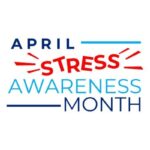Methamphetamine
Brief Description
 Methamphetamine is a central nervous system stimulant drug that is similar in structure to amphetamine. Due to its high potential for abuse, methamphetamine is classified as a Schedule II drug and is available only through a prescription that cannot be refilled. Although methamphetamine can be prescribed by a doctor, its medical uses are limited, and the doses that are prescribed are much lower than those typically abused. Most of the methamphetamine abused in this country comes from foreign or domestic superlabs, although it can also be made in small, illegal laboratories, where its production endangers the people in the labs, neighbors, and the environment.
Methamphetamine is a central nervous system stimulant drug that is similar in structure to amphetamine. Due to its high potential for abuse, methamphetamine is classified as a Schedule II drug and is available only through a prescription that cannot be refilled. Although methamphetamine can be prescribed by a doctor, its medical uses are limited, and the doses that are prescribed are much lower than those typically abused. Most of the methamphetamine abused in this country comes from foreign or domestic superlabs, although it can also be made in small, illegal laboratories, where its production endangers the people in the labs, neighbors, and the environment.
Chronic methamphetamine abuse significantly changes how the brain functions. Noninvasive human brain imaging studies have shown alterations in the activity of the dopamine system that are associated with reduced motor skills and impaired verbal learning. Recent studies in chronic methamphetamine abusers have also revealed severe structural and functional changes in areas of the brain associated with emotion and memory, which may account for many of the emotional and cognitive problems observed in chronic methamphetamine abusers.
Repeated methamphetamine abuse can also lead to addiction—a chronic, relapsing disease characterized by compulsive drug seeking and use, which is accompanied by chemical and molecular changes in the brain. Some of these changes persist long after methamphetamine abuse is stopped. Reversal of some of the changes, however, may be observed after sustained periods of abstinence (e.g., more than 1 year).

Effects
 As a powerful stimulant, methamphetamine, even in small doses, can increase wakefulness and physical activity and decrease appetite. Methamphetamine can also cause a variety of cardiovascular problems, including rapid heart rate, irregular heartbeat, and increased blood pressure. Hyperthermia (elevated body temperature) and convulsions may occur with methamphetamine overdose, and if not treated immediately, can result in death.
As a powerful stimulant, methamphetamine, even in small doses, can increase wakefulness and physical activity and decrease appetite. Methamphetamine can also cause a variety of cardiovascular problems, including rapid heart rate, irregular heartbeat, and increased blood pressure. Hyperthermia (elevated body temperature) and convulsions may occur with methamphetamine overdose, and if not treated immediately, can result in death.
Health Concerns
Taking even small amounts of methamphetamine can result in many of the same physical effects as those of other stimulants, such as cocaine or amphetamines, including increased wakefulness, increased physical activity, decreased appetite, increased respiration, rapid heart rate, irregular heartbeat, increased blood pressure, and hyperthermia.
Long-term methamphetamine abuse has many negative health consequences, including extreme weight loss, severe dental problems (“meth mouth”), anxiety, confusion, insomnia, mood disturbances, and violent behavior. Chronic methamphetamine abusers can also display a number of psychotic features, including paranoia, visual and auditory hallucinations, and delusions (for example, the sensation of insects crawling under the skin).
Transmission of HIV and hepatitis B and C can be consequences of methamphetamine abuse. The intoxicating effects of methamphetamine, regardless of how it is taken, can also alter judgment and inhibition and can lead people to engage in unsafe behaviors, including risky sexual behavior. Among abusers who inject the drug, HIV/AIDS and other infectious diseases can be spread through contaminated needles, syringes, and other injection equipment that is used by more than one person. Methamphetamine abuse may also worsen the progression of HIV/AIDS and its consequences. Studies of methamphetamine abusers who are HIV-positive indicate that HIV causes greater neuronal injury and cognitive impairment for individuals in this group compared with HIV-positive people who do not use the drug.
Source: NIDA (National Institute on Drug Abuse)










